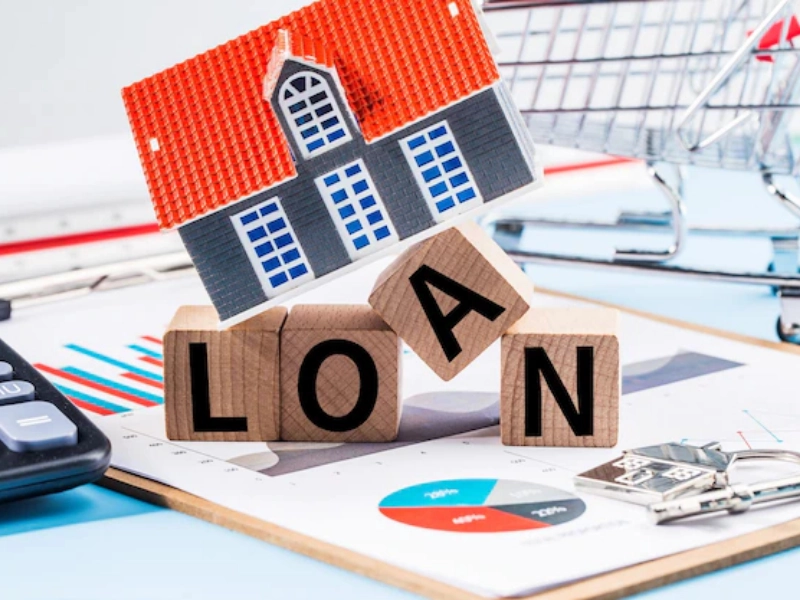Active-duty military, veterans, and their families can purchase a new home with the assistance of VA home purchase loans. Competitive interest rates are another benefit of VA mortgages. VA lenders usually require a minimum credit score of 620, though their requirements may differ. In addition, they mandate that borrowers adhere to VA and lender debt-to-income ratio requirements.
 VA loans' main advantage is that there is no down payment needed. For service members who do not have the money to make a sizable down payment, this is a big benefit. Additionally, lenders have more leeway to approve customers with less-than-perfect credit scores because VA standards do not specify a minimum credit score threshold.
For buyers who have a credit history of bankruptcy or foreclosure, a VA loan also provides flexibility. A "VA Cash-Out" refinance, which enables a borrower to access home equity in return for cash, is permitted by many lenders. This can be applied toward debt repayment, mortgage reduction, or home improvement projects.
When a current homeowner PCSes or passes away, VA loan eligibility can be transferred to another borrower, but there is a cost involved. In order to help defray program costs, veterans who utilize their entitlement a second time also have to pay a VA funding fee. Nonetheless, the charge might be eliminated if the veteran is granted disability benefits for problems related to their military service.
VA loans' main advantage is that there is no down payment needed. For service members who do not have the money to make a sizable down payment, this is a big benefit. Additionally, lenders have more leeway to approve customers with less-than-perfect credit scores because VA standards do not specify a minimum credit score threshold.
For buyers who have a credit history of bankruptcy or foreclosure, a VA loan also provides flexibility. A "VA Cash-Out" refinance, which enables a borrower to access home equity in return for cash, is permitted by many lenders. This can be applied toward debt repayment, mortgage reduction, or home improvement projects.
When a current homeowner PCSes or passes away, VA loan eligibility can be transferred to another borrower, but there is a cost involved. In order to help defray program costs, veterans who utilize their entitlement a second time also have to pay a VA funding fee. Nonetheless, the charge might be eliminated if the veteran is granted disability benefits for problems related to their military service.
 One significant benefit of VA loans is the absence of mortgage insurance, which is a requirement of conventional lending programs for borrowers making less than a 20% down payment. For individuals buying a house, this results in monthly savings of a substantial sum of money.
The only drawback to this is that there is still a funding fee associated with the loan, which helps defray the program's cost to taxpayers. However, surviving spouses of service-connected veterans and disabled veterans are exempt from paying the charge, which can be rolled into your loan amount.
The lack of a minimum credit score under VA loan criteria is another significant advantage. This allows lenders to be more accommodating to applicants who may have experienced financial difficulties in the past, such as bankruptcy or foreclosure. This instills trust in lenders to assist veterans who might not otherwise be eligible for a mortgage.
One significant benefit of VA loans is the absence of mortgage insurance, which is a requirement of conventional lending programs for borrowers making less than a 20% down payment. For individuals buying a house, this results in monthly savings of a substantial sum of money.
The only drawback to this is that there is still a funding fee associated with the loan, which helps defray the program's cost to taxpayers. However, surviving spouses of service-connected veterans and disabled veterans are exempt from paying the charge, which can be rolled into your loan amount.
The lack of a minimum credit score under VA loan criteria is another significant advantage. This allows lenders to be more accommodating to applicants who may have experienced financial difficulties in the past, such as bankruptcy or foreclosure. This instills trust in lenders to assist veterans who might not otherwise be eligible for a mortgage.
 A few days before your closing, the lender will give you a Closing Disclosure that includes a list of all fees and closing costs related to your loan. Additionally, the seller is able to deduct up to 4% of the house's worth from your eligible closing costs.
Compared to other mortgage types, VA lenders usually have less stringent credit underwriting standards. Lender-specific minimum credit scores can be as low as 620. Additionally, their debt-to-income ratios are more forgiving, and their waiting periods following adverse credit events—such as bankruptcy or foreclosure—are shorter.
One of the most adaptable and reasonably priced loans for homebuyers accessible today is a VA loan. To determine whether this is the best choice for them, a knowledgeable home loan specialist should evaluate each veteran's particular circumstances. VA home loans also include lower interest rates and a larger purchase cap, among other advantages. Reach out to us to discuss your options.
A few days before your closing, the lender will give you a Closing Disclosure that includes a list of all fees and closing costs related to your loan. Additionally, the seller is able to deduct up to 4% of the house's worth from your eligible closing costs.
Compared to other mortgage types, VA lenders usually have less stringent credit underwriting standards. Lender-specific minimum credit scores can be as low as 620. Additionally, their debt-to-income ratios are more forgiving, and their waiting periods following adverse credit events—such as bankruptcy or foreclosure—are shorter.
One of the most adaptable and reasonably priced loans for homebuyers accessible today is a VA loan. To determine whether this is the best choice for them, a knowledgeable home loan specialist should evaluate each veteran's particular circumstances. VA home loans also include lower interest rates and a larger purchase cap, among other advantages. Reach out to us to discuss your options.
 You can purchase a home with no down payment and no mortgage insurance if you have served in the armed forces or are the surviving spouse of a veteran who passed away while serving your country. A copy of your DD Form 214 and fulfillment of the VA's Minimum Property Requirements (MPRs) are prerequisites for eligibility.
Usually, lenders check your income in order to determine how much you can afford. On the other hand, VA lenders evaluate your ability to afford the loan using residual income and a debt-to-income ratio.
VA guidelines place a cap on the amount that lenders can charge, even though all loans have fees and closing costs. This lowers the cost of borrowing money for veterans. Lenders can also be more accommodating when it comes to credit problems. For example, VA standards do not include a cut-off credit score, while the majority of conventional loans do. Veterans can recover from bankruptcy, foreclosure, or a short sale more easily as a result of this.
You can purchase a home with no down payment and no mortgage insurance if you have served in the armed forces or are the surviving spouse of a veteran who passed away while serving your country. A copy of your DD Form 214 and fulfillment of the VA's Minimum Property Requirements (MPRs) are prerequisites for eligibility.
Usually, lenders check your income in order to determine how much you can afford. On the other hand, VA lenders evaluate your ability to afford the loan using residual income and a debt-to-income ratio.
VA guidelines place a cap on the amount that lenders can charge, even though all loans have fees and closing costs. This lowers the cost of borrowing money for veterans. Lenders can also be more accommodating when it comes to credit problems. For example, VA standards do not include a cut-off credit score, while the majority of conventional loans do. Veterans can recover from bankruptcy, foreclosure, or a short sale more easily as a result of this.